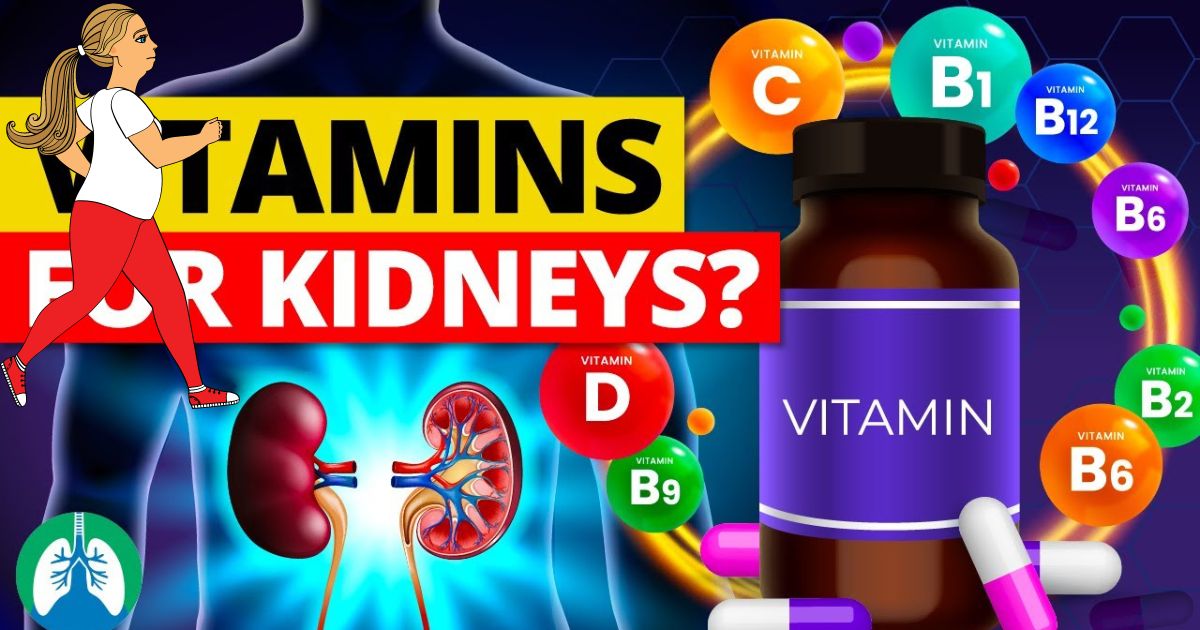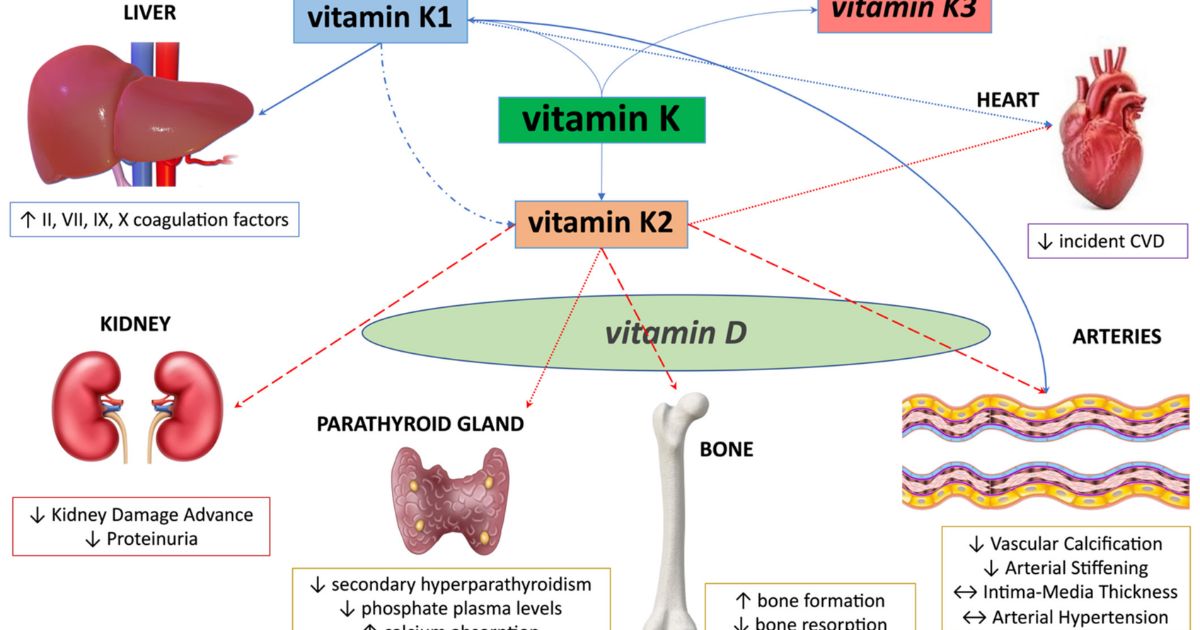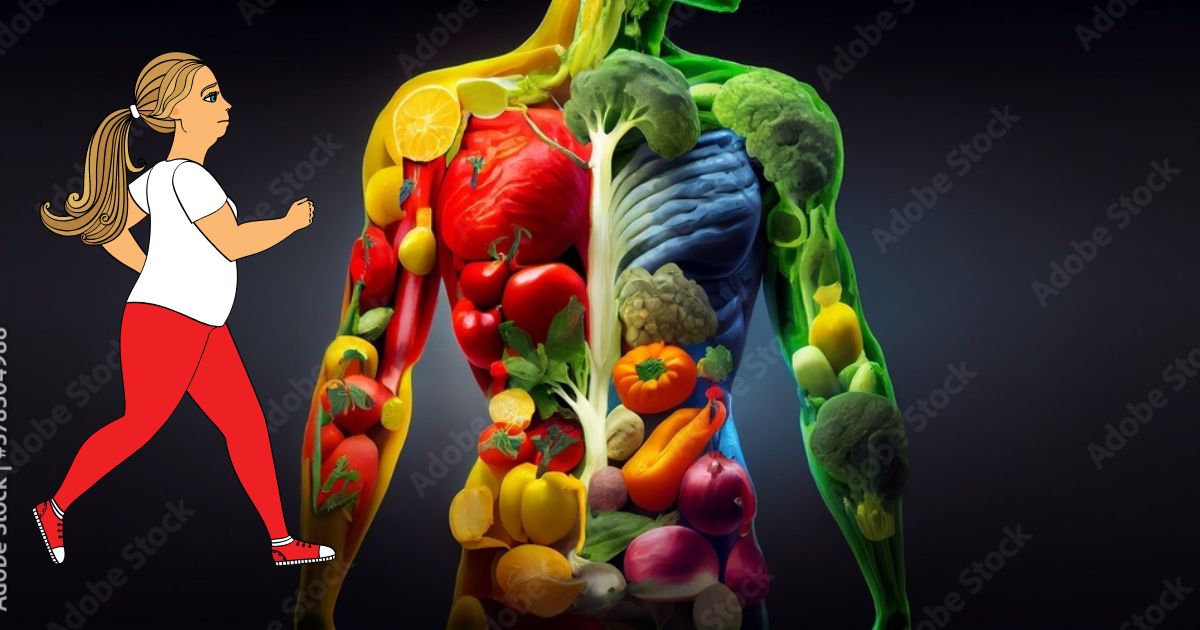Vitamins that are beneficial for the kidneys and liver include vitamin b complex, vitamin c, vitamin d, and vitamin e.the kidneys and liver are crucial organs in the body, responsible for removing toxins and waste products from the blood. Vitamins b, c, d, and e are known to have specific benefits for these organs.
Vitamin b complex helps in the metabolism of protein and fat, which is important for the liver. Vitamin c is an antioxidant that supports kidney function by preventing damage from free radicals. Vitamin d helps regulate calcium levels, which can affect kidney function, and vitamin e is also an antioxidant that helps protect liver cells from damage.
In this article, we will explore the importance of these vitamins for the health of our kidneys and liver.

Why Are Kidneys And Liver Important Organs In The Body?
The Key Roles Of Kidneys And Liver In Human Anatomy And Maintaining Homeostasis
The kidneys and liver are two vital organs in the human body that play important roles in maintaining homeostasis. The kidneys filter excess fluids and waste products from the bloodstream, while the liver helps to metabolize nutrients and detoxify harmful substances.
Below are some of the key functions of kidneys and liver in human anatomy:
- Kidneys:
- Produce urine to eliminate waste products from the body.
- Regulate fluid balance by retaining or excreting fluids.
- Regulate blood pressure by secreting hormones that help to control blood pressure levels.
- Produce hormones that help to regulate red blood cell production.
- Liver:
- Metabolizes nutrients from food, including carbohydrates, proteins, and fats.
- Detoxifies harmful substances such as alcohol, drugs, and toxins.
- Produces bile, which helps to digest fats.
- Stores and releases glucose as needed to maintain blood sugar levels.
Common Kidney And Liver Problems And Their Symptoms And Causes

Unfortunately, kidneys and liver can suffer from various disorders and diseases that can cause significant damage to these organs. Here are some of the most common kidney and liver problems and their symptoms and causes:
- Kidneys:
- Kidney stones – small, hard deposits of mineral and acid salts that can block the urinary tract. Symptoms include intense pain in the back, side or lower abdomen, nausea, and vomiting.
- Urinary tract infections – an infection in the urinary tract that can cause burning during urination, frequent urination, and pain in the lower abdomen.
- Chronic kidney disease – long-term damage to the kidneys that can lead to kidney failure. Symptoms include fatigue, weakness, swelling of the legs, and frequent urination.
- Acute kidney injury – a sudden and temporary loss of kidney function that can result from many causes. Symptoms include decreased urine output, fluid retention, shortness of breath, and confusion.
- Liver:
- Fatty liver disease – a condition in which fat accumulates in the liver that can result from excessive alcohol consumption or obesity. Symptoms may include fatigue, weakness, and abdominal pain.
- Hepatitis – inflammation of the liver caused by viruses, alcohol, or drugs. Symptoms include fever, fatigue, abdominal pain, and yellowing of the skin and eyes.
- Liver cirrhosis – a condition in which the liver becomes scarred and damaged, typically as a result of chronic alcoholism or viral hepatitis. Symptoms include fatigue, nausea, and jaundice.
The kidneys and liver are essential organs in the human body responsible for maintaining homeostasis by filtering wastes and breaking down nutrients. It is crucial to be aware of the common problems associated with these organs and their symptoms and causes to maintain good health.
Essential Vitamins For Kidney Health
Vitamins For Kidneys And Liver
Vitamins play a crucial role in maintaining overall health, including the health of our internal organs. The kidneys and liver are two vital organs that play an important role in keeping our body functioning properly. We will focus on the essential vitamins for kidney health that help maintain the health of this crucial organ.

Vitamin B Complex And Its Various Forms And Roles In Kidney Health
Vitamin b complex is a group of eight different vitamins that are essential for various bodily functions. The following are some of the functions that vitamin b complex performs in maintaining kidney health:
- Helps in the production of red blood cells, which are necessary for transporting oxygen to the cells and tissues of the body.
- Plays a crucial role in maintaining healthy nerve function.
- Keeps the skin and hair healthy.
Here are the various types of vitamin b complex that are important for kidney health:
- Vitamin b1 (thiamin): Helps in the conversion of food into energy and supports proper muscle and nerve function.
- Vitamin b2 (riboflavin): Essential for the metabolism of carbohydrates, proteins and fats.
- Vitamin b3 (niacin): Like vitamin b1, helps convert food into energy, and also plays a role in maintaining healthy skin and nerves.
- Vitamin b5 (pantothenic acid): Helps in the production of hormones and metabolizing fats and proteins.
- Vitamin b6 (pyridoxine): Essential for the production of antibodies and maintaining proper nerve function.
- Vitamin b7 (biotin): Helps in the metabolism of carbohydrates, fats, and amino acids.
- Vitamin b9 (folate): Crucial for the production of dna and rna, essential building blocks of cells.
- Vitamin b12 (cobalamin): Essential for the formation of red blood cells and maintaining a healthy nervous system.
Vitamin D And Its Importance In Maintaining Calcium Balance And Preventing Chronic Kidney Disease

Vitamin d is an essential vitamin that plays a vital role in maintaining overall health. It helps the body absorb calcium, which is necessary for healthy bones and teeth. In addition to its crucial role in bone health, vitamin d is also important in maintaining kidney health.
Studies have shown that vitamin d deficiency can increase the risk of chronic kidney disease (ckd), a serious condition where the kidneys lose their ability to function properly. Vitamin d plays a vital role in maintaining calcium balance in the body, preventing the buildup of calcium in the kidneys and reducing the risk of kidney damage.
Vitamin C And Its Antioxidative Properties To Protect Against Oxidative Stress And Inflammation That Harm Kidneys
Vitamin c is a powerful antioxidant that plays a crucial role in maintaining kidney health. One of the main functions of the kidneys is to filter waste and toxins from the bloodstream. Unfortunately, this process also produces free radicals, which can cause oxidative stress and inflammation that harm the kidneys.
Vitamin c helps protect against this damage, as it is a potent antioxidant that neutralizes free radicals and reduces oxidative stress and inflammation in the body. Adequate vitamin c intake has been shown to reduce the risk of kidney disease and promote overall kidney health.
Other Vitamins That May Benefit Kidney Health
In addition to the vitamins mentioned above, other vitamins can also play a role in maintaining kidney health. Some of these include:
- Vitamin e: Another powerful antioxidant, vitamin e may help protect against kidney damage caused by oxidative stress and inflammation.
- Vitamin k: Vital in the process of blood clotting, vitamin k has also been shown to reduce calcium buildup in the arteries, reducing the risk of kidney damage.
Ensuring a diet that contains adequate amounts of these essential vitamins can help promote healthy kidney function. Taking supplements may also be necessary for people who struggle to obtain these vitamins through their diet alone. A healthy diet, coupled with regular exercise and healthy lifestyle choices, can go a long way in promoting overall kidney health.
Essential Vitamins For Liver Health
The liver is a vital organ that plays a crucial role in detoxification, metabolism, and digestion. It’s therefore important to provide it with the essential vitamins to keep it functioning optimally. Here are some of the vitamins that are crucial for liver health:
Vitamin A And Its Role In Preventing Liver Damage And Improving Liver Function
Vitamin a is an essential nutrient that plays a significant role in liver health. It helps prevent liver damage caused by toxins, reduces inflammation, and promotes liver function. Adequate amounts of this vitamin in the body can help protect the liver and prevent liver diseases.
Vitamin C And Its Antioxidant Properties To Help The Liver Detoxify
Another essential vitamin for liver health is vitamin c. it has powerful antioxidant properties that help neutralize harmful toxins in the liver, promoting detoxification and reducing oxidative stress. This vitamin also helps boost the immune system and reduces inflammation in the liver, promoting optimal liver health.
Vitamin E And Its Role In Preventing Non-Alcoholic Fatty Liver Disease (Nafld)
Vitamin e is a fat-soluble vitamin that has anti-inflammatory properties and protects against oxidative damage. Studies have shown that it may prevent the development of non-alcoholic fatty liver disease (nafld), a condition that occurs due to the accumulation of fat in the liver.
Vitamin D And Its Potential In Fatty Liver Disease Treatment
Vitamin d is a vital nutrient that plays a critical role in liver health. Studies have shown that it may help reduce inflammation and improve liver function in people with non-alcoholic fatty liver disease (nafld). Although more research is needed, getting adequate amounts of vitamin d may be beneficial for those with fatty liver disease.
Other Vitamins That May Help Improve The Liver’S Health
Apart from the above essential vitamins, other vitamins such as b vitamins and vitamin k are also important for liver health. B vitamins help the liver metabolize fats and carbohydrates while vitamin k promotes blood clotting and helps regulate calcium levels in the body.
Ensuring adequate intake of these vitamins can help improve liver function and promote optimal liver health.
Food Sources Of Vitamins For Kidney And Liver Health
Vitamins for kidneys and liver – food sources of vitamins for kidney and liver health
Our kidneys and liver are essential organs that need proper care and attention. They play a significant role in filtering toxins and waste products from our body. A healthy diet rich in vitamins can support these organs in doing their job efficiently.
Let’s explore some nutritious foods that contain essential vitamins for kidney and liver health.
List Of Healthy And Nutritious Foods That Contain Essential Vitamins
Eating a balanced diet is essential for overall health. Here are some foods that can help maintain kidney and liver health:
- Fish: Rich in omega-3 fatty acids, fish can help reduce inflammation and protect against kidney and liver diseases. Salmon, sardines, and tuna are excellent sources of omega-3 fatty acids.
- Berries: High in antioxidants, berries can help reduce inflammation and fight against oxidative stress. Blueberries, raspberries, and strawberries are great options.
- Leafy greens: These vegetables contain high amounts of vitamins a and c, as well as magnesium and potassium, which can help support the kidneys and liver. Spinach, kale, and collard greens are excellent options.
- Nuts and seeds: These are a great source of healthy fats and can provide vitamin e, which can help protect against liver damage. Almonds, walnuts, and chia seeds are excellent sources.
- Whole grains: These foods provide fiber, which can help reduce the risk of kidney disease. Brown rice, quinoa, and whole wheat bread are great options.
Tips To Incorporate These Foods Into Your Daily Diet In A Balanced Way
It’s essential to incorporate these foods into your daily diet to support kidney and liver health. Here are some tips on how to do this:
- Start with small changes: Incorporating these foods can be overwhelming, so start by introducing them gradually into your diet. For instance, try adding some berries to your breakfast cereal or snacking on some nuts in the afternoon.
- Plan your meals: Planning your meals in advance can help ensure that you are eating a balanced and healthy diet. Research some kidney and liver-friendly recipes and plan your meals for the week.
- Choose fresh foods: Fresh foods are more nutritious, so make sure to choose fresh fruits and vegetables. Avoid packaged foods that contain high amounts of sodium and sugar.
- Portion control: Eating too much of a particular food can be harmful, so make sure to practice portion control. Use smaller plates and eat slowly to avoid overeating.
A healthy diet rich in vitamins can support both kidney and liver health. Incorporating these foods and following some simple tips can help maintain overall health and keep our organs functioning correctly. Remember, small changes can make a significant difference in the long run.
Frequently Asked Questions For Vitamins For Kidneys And Liver
What Are The Best Vitamins For Kidney Health?
Vitamins b6, c, and d help in slowing down kidney damage. Vitamin e, folate, and niacin also enhance kidney function.
Which Vitamins Are Essential For Liver Function?
Vitamins a, c, e help in detoxifying the liver. Vitamin d and b complex aid in reducing inflammation and decreasing liver enzyme levels.
Is Vitamin C Good For The Kidneys?
Vitamin c is an antioxidant that can prevent kidney damage by strengthening the immune system of the body.
Can Vitamin D Help With Liver Disease?
Vitamin d helps regulate the immune system, reduce inflammation, and prevent liver damage. Sufficient vitamin d level is vital for liver function.
What Are The Foods That Help Liver And Kidney Health?
Eating spinach, broccoli, garlic, grapefruit and berries provide good nutrition for the liver. Red bell peppers, cabbage, and cauliflower are beneficial for kidneys.
Conclusion
As we wrap up this discussion on the essential vitamins for kidneys and liver, it’s evident that these organs require proper nourishment to function optimally. The vitamins we’ve highlighted in this post are only a few of the many nutrients that contribute to the overall health of these vital organs.
Therefore, it’s crucial to adopt a diet that includes a variety of fruits, vegetables, and whole grains. Along with this, it’s essential to maintain a healthy lifestyle by staying hydrated, avoiding excessive alcohol intake, and exercising regularly. Remember that prevention is better than cure, so prioritizing your kidney and liver health should be a top priority.
With a balanced diet and lifestyle habits, you’ll positively impact your overall well-being while reducing your risk of liver and kidney issues. Let’s make healthy choices today for a better tomorrow!




